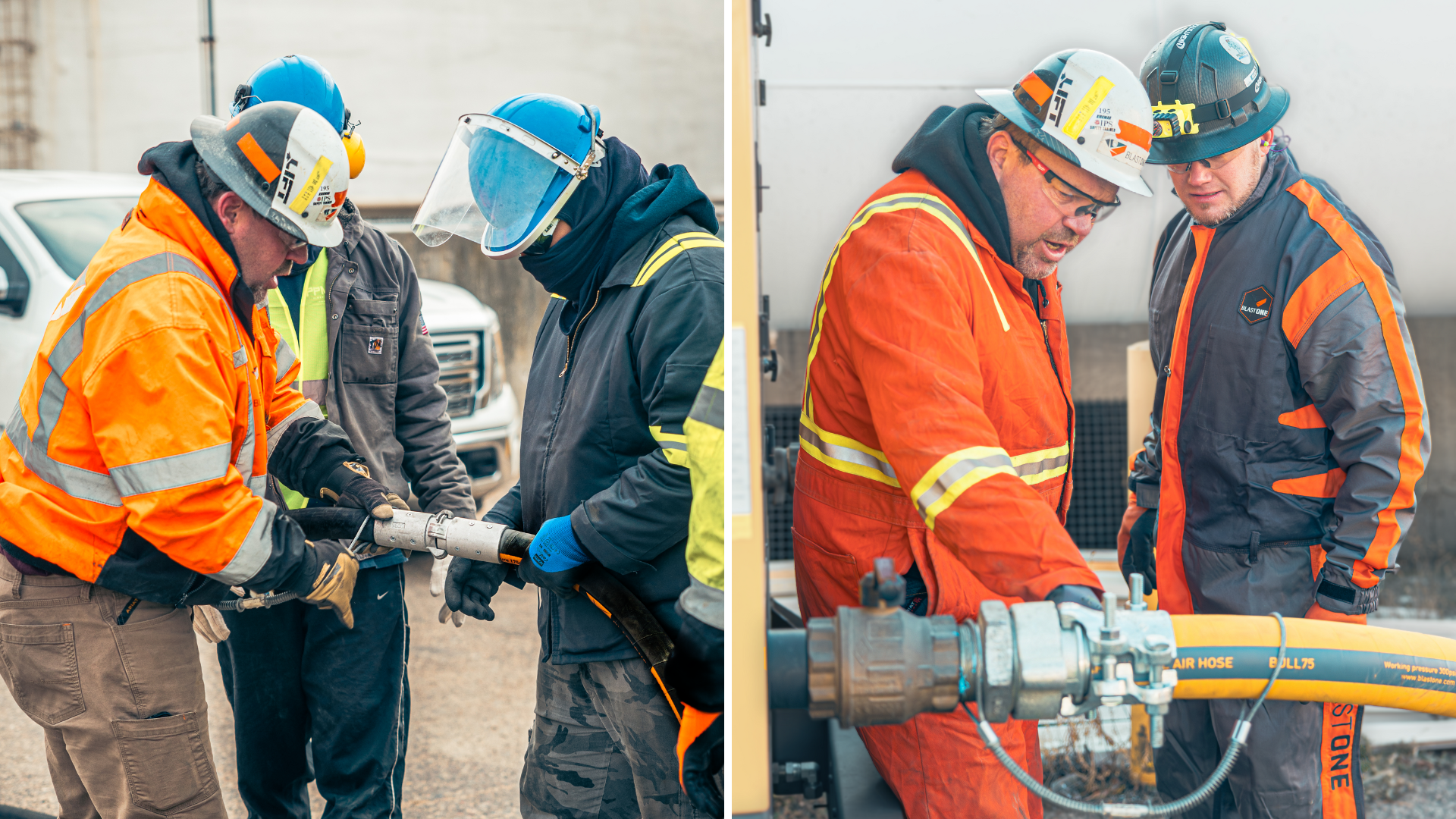Equipment Dangers
- Only Trained Professionals: Abrasive blast equipment must be operated by trained professionals. Always familiarize yourself with all manuals, warning labels, and instruction tags.
- Pressure Awareness: Never exceed the maximum pressure rating of the lowest-rated component in your system.
- PPE Requirement: Full personal protective equipment (PPE) is mandatory when operating blast equipment.
- No Modifications: Do not alter or substitute components. Use only authorized parts and accessories.
- Daily Checks: Conduct daily equipment checks and replace any worn or damaged parts immediately.
- Proper Hose Handling: Keep hoses straight, away from sharp objects, and avoid extreme temperatures.
Abrasives and Air Pressure Dangers
- Abrasive Hazards: Never use sand or abrasives containing heavy metals or biological contaminants.
- Serious Injuries: Even minor abrasions from abrasives can cause severe injuries; seek immediate medical attention if injured.
- Whip Checks: Always install whip checks on hoses to prevent accidents due to disconnection.
- Proper PPE: Wear approved air-fed helmets, hearing protection, gloves, aprons, and protective footwear.
- Daily Safety Checks: Regularly check remote controls and deadman triggers to ensure they function correctly.
Moving Parts Dangers
- Keep Distance: Maintain a safe distance from all moving parts to avoid pinching or amputation injuries.
- Secure Attachments: Ensure lock pins and whip checks are correctly fitted to all equipment ends.
Fire and Explosion Dangers
- Ventilation: Ensure proper ventilation to prevent toxic fume buildup.
- Grounding: Ground both your equipment and the object being blasted to prevent static discharge.
- No Sparks or Flames: Eliminate all sparks, open flames, and unnecessary electrical equipment in the blasting area.
Toxic Substances
- Hazardous Materials: Be aware of the specific hazards of the materials you are blasting and always wear appropriate PPE.
- Proper Disposal: Store and dispose of hazardous waste in approved containers according to regulations.
- Breathing Air Quality: Use certified breathing air hoses and monitor air quality regularly. Replace filter cartridges every 3 months or 400 hours, or sooner if needed.
Noise Hazard
- Hearing Protection: Always wear hearing protection on jobsites, as noise levels often exceed safe decibel limits. A blast helmet alone does not provide sufficient protection.
 My Account
My Account




